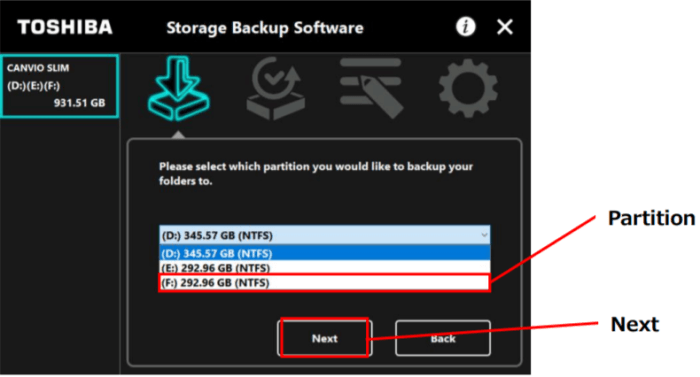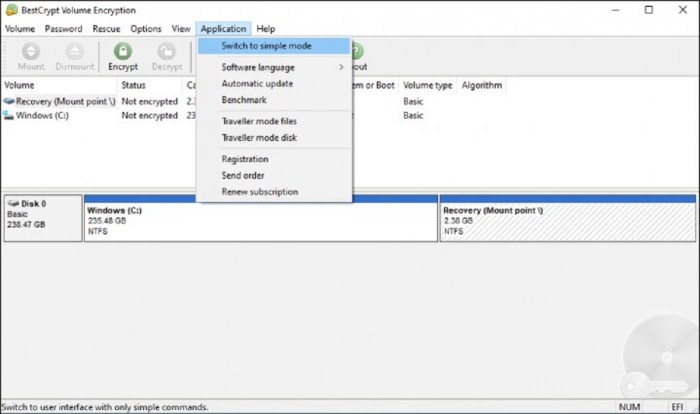Best encryption software for external hard drive – Protecting your sensitive data stored on external hard drives is crucial in today’s digital landscape. Whether you’re storing personal photos, financial documents, or confidential business information, robust encryption is paramount. This comprehensive guide explores the best encryption software options available, helping you choose the right solution to safeguard your valuable data. We’ll delve into various aspects, including ease of use, security features, platform compatibility, and pricing, to provide you with a clear understanding of what to look for.
Understanding Data Encryption for External Hard Drives
Before diving into specific software, it’s essential to grasp the basics of data encryption. Encryption transforms your readable data (plaintext) into an unreadable format (ciphertext) using a complex algorithm and a unique encryption key. Only someone with the correct decryption key can access the original data. This process protects your information from unauthorized access, even if your hard drive is lost or stolen.
Types of Encryption
- Symmetric Encryption: Uses the same key for both encryption and decryption. Faster but requires secure key exchange.
- Asymmetric Encryption: Uses two separate keys – a public key for encryption and a private key for decryption. More secure for key management but slower.
- Full Disk Encryption (FDE): Encrypts the entire hard drive, including the operating system and all data. Offers the highest level of protection.
- File-Level Encryption: Encrypts individual files or folders. Offers flexibility but requires careful management of encrypted files.
Top Encryption Software for External Hard Drives: Best Encryption Software For External Hard Drive
The market offers a wide range of encryption software. Here are some of the leading options, categorized for easier comparison:
Software-Based Encryption Solutions, Best encryption software for external hard drive
- VeraCrypt: A free, open-source, and powerful disk encryption software. It’s highly regarded for its security and cross-platform compatibility (Windows, macOS, Linux). Supports both symmetric and asymmetric encryption. [ VeraCrypt Website ]
- BitLocker (Windows): A built-in full disk encryption utility for Windows operating systems. Easy to use but limited to Windows platforms. Offers strong encryption and integration with Windows security features. [ Microsoft BitLocker Documentation ]
- FileVault (macOS): Apple’s built-in full disk encryption solution for macOS. Simple to use and integrated seamlessly with the macOS ecosystem. Offers robust security. [ Apple FileVault Support ]
- 7-Zip: While primarily a file compression utility, 7-Zip also offers strong encryption capabilities using AES-
256. It’s free, open-source, and supports various archive formats. [ 7-Zip Website ]
Hardware-Based Encryption Solutions
Some external hard drives come with built-in hardware encryption. This offers an extra layer of security as the encryption process is handled by dedicated hardware, making it more resistant to software attacks.
- Seagate Secure HDDs: Many Seagate external drives offer hardware encryption using AES-256. Check the specifications of the drive before purchasing.
- Western Digital My Passport Ultra with Password Protection: Western Digital offers drives with password protection and hardware encryption.
Choosing the Right Encryption Software
Selecting the best encryption software depends on your specific needs and priorities. Consider these factors:

Source: ubackup.com
- Operating System Compatibility: Ensure the software is compatible with your operating system (Windows, macOS, Linux).
- Encryption Strength: Look for software that uses strong encryption algorithms like AES-256.
- Ease of Use: Choose software that’s intuitive and easy to use, even for non-technical users.
- Key Management: Consider how the software manages encryption keys. Secure key management is crucial.
- Cost: Many excellent free and open-source options are available, but paid software might offer additional features or support.
- Performance Impact: Encryption can slightly impact performance. Consider the trade-off between security and speed.
Frequently Asked Questions (FAQs)
- Q: Is encryption really necessary for external hard drives? A: Yes, especially if you store sensitive data. Encryption protects your information from unauthorized access in case of loss or theft.
- Q: What is the strongest encryption algorithm? A: AES-256 is widely considered one of the strongest and most secure encryption algorithms currently available.
- Q: How do I choose a strong password for my encrypted drive? A: Use a long, complex password that combines uppercase and lowercase letters, numbers, and symbols. Avoid using easily guessable information.
- Q: What happens if I lose my encryption key? A: You will lose access to your encrypted data. Therefore, securely backing up your encryption key is essential.
- Q: Can I encrypt a hard drive without software? A: Some external hard drives offer built-in hardware encryption, eliminating the need for separate software.
- Q: Is hardware encryption better than software encryption? A: Hardware encryption is generally considered more secure as it’s less susceptible to software attacks. However, software encryption is often more versatile and accessible.
Conclusion
Protecting your data on external hard drives is crucial. Choosing the right encryption software is a significant step in safeguarding your valuable information. By carefully considering your needs and the factors discussed above, you can select the best solution to keep your data secure. Remember to always back up your encryption keys and practice good password hygiene.

Source: straight.com
Call to Action
Start protecting your data today! Download and install a reliable encryption software and secure your external hard drive. Choose the solution that best suits your needs and budget from the options discussed above. Your peace of mind is worth it.
FAQ Corner
What are the different types of encryption algorithms used in hard drive encryption software?
Common algorithms include AES (Advanced Encryption Standard), which is widely considered secure, and others like Twofish or Serpent. The strength of the algorithm and the key length are critical factors.
How do I recover my data if I forget my encryption password?
Data recovery is typically impossible without the correct password. Choose a strong password you can remember and consider using a password manager. Some software offers recovery options, but these should be used cautiously.
Is hardware encryption more secure than software encryption?

Source: robots.net
Hardware encryption, which uses a dedicated chip on the hard drive itself, generally offers a higher level of security as it is less vulnerable to software attacks. However, software encryption is often more accessible and flexible.
What is key management, and why is it important?
Key management refers to the secure storage and handling of your encryption keys. Losing your keys means losing access to your data. Strong key management practices, such as using strong passwords and secure storage, are crucial.
